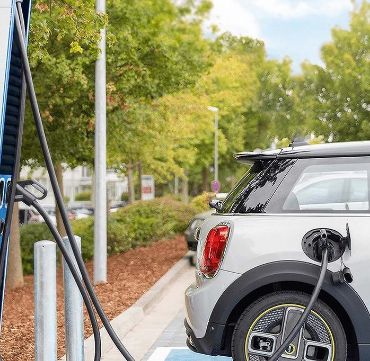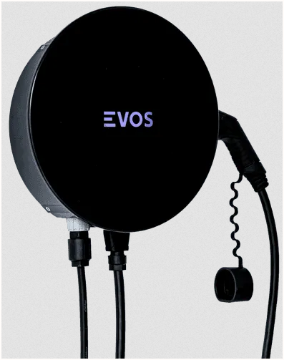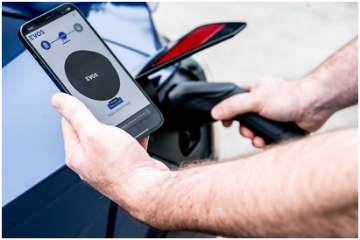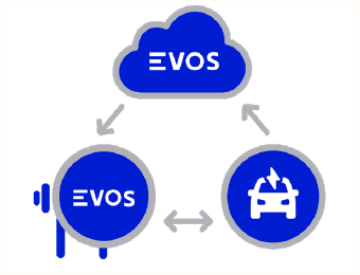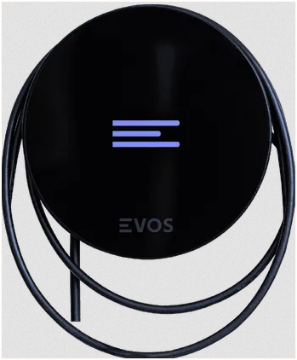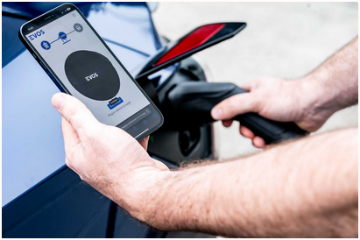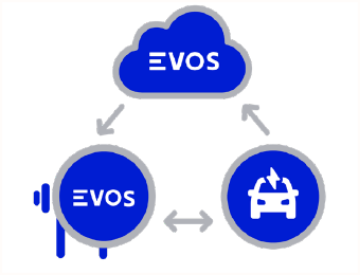-
+61 (411) 176 633 Call us now
My account Login / Create Account
- 0
CHECKOUT $0.00
Shopping Cart
You have no items in your shopping cart.
- Home page
- Food & Beverage (610)
- Alcohol (22)
- Liqueurs (0)
- Beer & Cider (2)
- Wine (1)
- Sake (0)
- Spirits (0)
- RTD - Ready to Drink (0)
- Pre Mix Cocktails (0)
- Organic Products (19)
- Kosher Products (0)
- Beverages (148)
- Food (439)
- Fresh Food (20)
- Meat (0)
- Vegetables (13)
- Potatoes, Kumera & Sweet Potatoes (0)
- Asian Vegetables (0)
- Broccoli (0)
- Cauliflower (0)
- Asparagus (0)
- Beans (5)
- Corn (2)
- Peas (1)
- Beetroot (0)
- Radish (0)
- Capsicum (0)
- Celeriac (0)
- Rhubarb (0)
- Fennel (0)
- Celery (0)
- Eggplant (0)
- Chillies (0)
- Mushrooms (0)
- Onions, Leeks & Garlic (0)
- Ginger & Turmeric (2)
- Cucumbers & Zucchini (0)
- Pumpkins & Squash (0)
- Carrots, Parsnips & Root Vegetables (0)
- Seafood (0)
- Fruit (4)
- Fresh Herbs (2)
- Fresh Spices (0)
- Fresh Pasta (1)
- Kimchi (0)
- Dairy (7)
- Frozen Food (0)
- Condiments & Sauces (41)
- Confectionery & Snacks (132)
- Dry Goods & Pantry (140)
- Dips & Pates (0)
- Salads (0)
- Deli (0)
- Oils (3)
- Halal Products (0)
- Kosher (3)
- Pre-Cooked Foods (0)
- Grocery Lines (93)
- Fresh Food (20)
- Alcohol (22)
- Hospitality (1005)
- Hospitality Supplies (6)
- Drinkware (0)
- Barware (0)
- Cutlery (0)
- Dinnerware (0)
- Disposable (0)
- Kitchenware (3)
- Storage Containers (2)
- Kitchen Utensils (1)
- COLANDERS (0)
- Cutting Boards (0)
- DOCKETS HOLDERS (0)
- EGG RINGS (0)
- Food Stackers (0)
- Funnels (0)
- GRATERS (0)
- GRIDDLE CLEANING (0)
- Ladles (0)
- LIGHTERS & BLOW TORCHES (0)
- MASHERS & FOOD MILLS (0)
- MEASURING SCALES (0)
- MEASURING UTENSILS (0)
- Mixing Bowls (0)
- Can Openers (0)
- PEELERS (0)
- Pizza Accessories (0)
- PRESSES & CRUSHERS (0)
- Scoops (0)
- SHAKERS (1)
- SKIMMERS (0)
- SLICERS (0)
- SPATULAS & PADDLES (0)
- SPINNERS (0)
- SPOONS (0)
- STRAINERS (0)
- Tea Towels (0)
- TENDERISERS & SKEWERS (0)
- THERMOMETERS (0)
- TONGS (0)
- TURNERS & SCRAPERS (0)
- Whisks (0)
- Table Service (1)
- Ashtrays (0)
- Baskets (0)
- Bowls (0)
- Buffetware (0)
- Cake Display (0)
- Child Seating (0)
- CONDIMENTS (0)
- Countertop (0)
- CUTLERY HOLDERS (0)
- Display Stands (0)
- Jars (0)
- Jugs (0)
- Lamps & Candles (0)
- PLATTERS & DISHES (0)
- SALT & PEPPER Dispensers (0)
- SERVICE TRAYS (0)
- Serving Utensils (0)
- Servingware (0)
- Signs (0)
- TABLE ACCESSORIES (0)
- Linen (0)
- TABLE NUMBERS & STANDS (0)
- Tea & Coffee (1)
- Barista Crockery (0)
- Kitchen Consumables (0)
- Packaging (2)
- Social Distancing & Crowd Control (0)
- Professional Cooking Books (0)
- Hospitality Equipment (867)
- Stainless Steel Benches (7)
- Shelving (1)
- Benchtop Equipment (72)
- Commercial Microwave Ovens (8)
- Blenders (4)
- BLIXERS (0)
- CASH REGISTER (0)
- Contact Grills (5)
- CUTTERS/MIXERS (1)
- FOOD PROCESSORS (4)
- Food Warmers (9)
- Fryers (5)
- GUEST ROOMS (0)
- Hot Water & Coffee (10)
- HOTPLATE & TOASTER (1)
- Insect Killer (4)
- Commercial Juicers (1)
- MINCERS (1)
- PASTA & DOUGH (0)
- PLANETARY MIXERS (1)
- Rice Cooker (3)
- MEAT SLICERS (2)
- SPECIALTY EQUIPMENT (0)
- STICK BLENDERS (0)
- Toasters (7)
- VACUUM SEALERS (0)
- VEGETABLE PREPERATION (0)
- SPIRAL MIXERS (1)
- INDUCTION COOKTOPS (0)
- HIGH-SPEED OVENS (5)
- FRAPPE MACHINES (0)
- Mini Fills (0)
- Cooking Equipment (73)
- RANGES (0)
- Fryers (9)
- Asian Cooking (0)
- BOILING KETTLE (0)
- BRATT PAN (1)
- COOKTOPS (16)
- GRIDDLES (5)
- INDUCTION COOKTOPS (3)
- PASTA & NOODLE COOKERS (4)
- SALAMANDERS (3)
- VARIO COOKING (0)
- Charcoal Chicken Rotisserie (0)
- CHARGRILLS (4)
- STOCK POT COOKTOPS (3)
- WOK COOKTOPS (2)
- TARGET TOP COOKTOPS (1)
- Commercial Ovens (22)
- Food Display (1)
- Food Transport (0)
- Refrigeration (89)
- Trolleys & Carts (0)
- Warewashing (40)
- Coffee Grinders (168)
- Bakery Equipment (2)
- Drink Dispensers (0)
- Butchery Equipment (0)
- Commercial Hood Systems (3)
- Beverage Dispensing Equipment (0)
- Hotel Supplies (132)
- Hospitality Supplies (6)
- Corporate Office (488)
- Manufacturing Supplies (13)
- Materials Handling & 3PL Supply (0)
- Trolley & Hand Trucks (0)
- Pallet Lifiting (0)
- Material Handling Equipment (0)
- Tow Tugs & Powered Equipment (0)
- Electric Utility Vehicles (0)
- Lifiting Trolleys (0)
- Warehouse Conveyor Systems (0)
- Stackers & Pallet Jacks (0)
- Forklift & Crane Attachments (0)
- Dangerous Goods Storage (0)
- Wheelie Bin Lifter & Tipper (0)
- Recycling & Waste Management (0)
- Workshop, Maintenance & Storage (0)
- Access Equipment (0)
- Plastic & Storage Containers (0)
- Safety, Security & Barriers (0)
- Pallets (0)
- Dunnage Bags (0)
- Active Mineral Desiccant (0)
- Packaging (13)
- Brewery Services (0)
- Materials Handling & 3PL Supply (0)
- Appliances (962)
- Cleaning & Laundry (120)
- Heating & Cooling (17)
- Personal Care (95)
- Small Appliances (683)
- Kettles (84)
- Toasters (80)
- Sandwich Makers (21)
- Benchtop Cooking (39)
- Rice Cookers (6)
- Slow Cookers (16)
- Pressure Cookers (4)
- Blenders (99)
- Digital Clock Radios (4)
- Portable Radios (15)
- Air Purifiers (0)
- Water Filter & Chillers (1)
- Electric Knifes (0)
- Food Slicers (1)
- Coffee & Spice Grinders (0)
- Food Dehydrators (1)
- Food Processors (30)
- Hand Mixer (16)
- Food Steamers (1)
- Stick Mixer (8)
- Air Fryers (8)
- Electricial Ovens (0)
- Turbo Convection Ovens (0)
- Wok & Steam Boats (2)
- Food Warmer (0)
- Teppanyaki & BBQ Grills (2)
- Urns & Hot Water Dispensers (10)
- Pie Warmers (4)
- Electric Coffee Grinders (8)
- Coffee Machines (123)
- Bread Makers (1)
- Dehumidifiers (8)
- Household Juicers (15)
- Waffle Maker (3)
- Jaffle Maker (3)
- Pancake Maker (1)
- Milkshake Maker (2)
- Omelette Maker (1)
- Ice Cream Maker (2)
- Pie Maker (2)
- Kitchenware (22)
- Kitchen Add on Accessories (40)
- Microwaves (24)
- Refrigeration (19)
- Hand Dryers (3)
- Extractor & Ducted Exhaust Fans (0)
- Kitchen Range (1)
- Computers & Electronics (817)
- Hardware & Gardens (327)
- Cameras (52)
- Leisure (261)
- Medical Supplies & Hospital Equipment (1)
- Healthcare & Beauty Supplies (82)
- Janitorial & Hygiene & Cleaning (27)
- Paper Towels and Dispensers (0)
- Washroom Supplies (3)
- Cleaning Agents & Chemicals (8)
- Housekeeping (0)
- Machine Warewashing (0)
- Personal Care (0)
- Pest Control (3)
- Air Freshners (0)
- Dispensers & Equipment (0)
- Scrubbers and Scourers (0)
- Garbage Bags (0)
- Window Cleaning (1)
- Dust Control (0)
- Floor Cleaning (1)
- Sponges - Cloths - Wipes (0)
- Facial Tissues (0)
- Janitorial Carts (0)
- Refill Bottles (0)
- Gloves (0)
- Antibacterial Wipes (0)
- Hand Sanitiser (0)
- Grillbricks (0)
- Housekeeping Trolleys (0)
- Oven Cleaners (0)
- Scrapers (0)
- Bins (0)
- Brooms & Brushware (0)
- EQUIPMENT CLEANING (0)
- HAND / BODY WASH (0)
- MATTING (0)
- MOPS, BUCKETS, SQUEEGEES (0)
- Laundry Machines (10)
- Laundry Products (1)
- Telecommunications (86)
- Home page
- Food & Beverage (610)
- Alcohol (22)
- Liqueurs (0)
- Beer & Cider (2)
- Wine (1)
- Sake (0)
- Spirits (0)
- RTD - Ready to Drink (0)
- Pre Mix Cocktails (0)
- Organic Products (19)
- Kosher Products (0)
- Beverages (148)
- Food (439)
- Fresh Food (20)
- Meat (0)
- Vegetables (13)
- Potatoes, Kumera & Sweet Potatoes (0)
- Asian Vegetables (0)
- Broccoli (0)
- Cauliflower (0)
- Asparagus (0)
- Beans (5)
- Corn (2)
- Peas (1)
- Beetroot (0)
- Radish (0)
- Capsicum (0)
- Celeriac (0)
- Rhubarb (0)
- Fennel (0)
- Celery (0)
- Eggplant (0)
- Chillies (0)
- Mushrooms (0)
- Onions, Leeks & Garlic (0)
- Ginger & Turmeric (2)
- Cucumbers & Zucchini (0)
- Pumpkins & Squash (0)
- Carrots, Parsnips & Root Vegetables (0)
- Seafood (0)
- Fruit (4)
- Fresh Herbs (2)
- Fresh Spices (0)
- Fresh Pasta (1)
- Kimchi (0)
- Dairy (7)
- Frozen Food (0)
- Condiments & Sauces (41)
- Confectionery & Snacks (132)
- Dry Goods & Pantry (140)
- Dips & Pates (0)
- Salads (0)
- Deli (0)
- Oils (3)
- Halal Products (0)
- Kosher (3)
- Pre-Cooked Foods (0)
- Grocery Lines (93)
- Fresh Food (20)
- Alcohol (22)
- Hospitality (1005)
- Hospitality Supplies (6)
- Drinkware (0)
- Barware (0)
- Cutlery (0)
- Dinnerware (0)
- Disposable (0)
- Kitchenware (3)
- Storage Containers (2)
- Kitchen Utensils (1)
- COLANDERS (0)
- Cutting Boards (0)
- DOCKETS HOLDERS (0)
- EGG RINGS (0)
- Food Stackers (0)
- Funnels (0)
- GRATERS (0)
- GRIDDLE CLEANING (0)
- Ladles (0)
- LIGHTERS & BLOW TORCHES (0)
- MASHERS & FOOD MILLS (0)
- MEASURING SCALES (0)
- MEASURING UTENSILS (0)
- Mixing Bowls (0)
- Can Openers (0)
- PEELERS (0)
- Pizza Accessories (0)
- PRESSES & CRUSHERS (0)
- Scoops (0)
- SHAKERS (1)
- SKIMMERS (0)
- SLICERS (0)
- SPATULAS & PADDLES (0)
- SPINNERS (0)
- SPOONS (0)
- STRAINERS (0)
- Tea Towels (0)
- TENDERISERS & SKEWERS (0)
- THERMOMETERS (0)
- TONGS (0)
- TURNERS & SCRAPERS (0)
- Whisks (0)
- Table Service (1)
- Ashtrays (0)
- Baskets (0)
- Bowls (0)
- Buffetware (0)
- Cake Display (0)
- Child Seating (0)
- CONDIMENTS (0)
- Countertop (0)
- CUTLERY HOLDERS (0)
- Display Stands (0)
- Jars (0)
- Jugs (0)
- Lamps & Candles (0)
- PLATTERS & DISHES (0)
- SALT & PEPPER Dispensers (0)
- SERVICE TRAYS (0)
- Serving Utensils (0)
- Servingware (0)
- Signs (0)
- TABLE ACCESSORIES (0)
- Linen (0)
- TABLE NUMBERS & STANDS (0)
- Tea & Coffee (1)
- Barista Crockery (0)
- Kitchen Consumables (0)
- Packaging (2)
- Social Distancing & Crowd Control (0)
- Professional Cooking Books (0)
- Hospitality Equipment (867)
- Stainless Steel Benches (7)
- Shelving (1)
- Benchtop Equipment (72)
- Commercial Microwave Ovens (8)
- Blenders (4)
- BLIXERS (0)
- CASH REGISTER (0)
- Contact Grills (5)
- CUTTERS/MIXERS (1)
- FOOD PROCESSORS (4)
- Food Warmers (9)
- Fryers (5)
- GUEST ROOMS (0)
- Hot Water & Coffee (10)
- HOTPLATE & TOASTER (1)
- Insect Killer (4)
- Commercial Juicers (1)
- MINCERS (1)
- PASTA & DOUGH (0)
- PLANETARY MIXERS (1)
- Rice Cooker (3)
- MEAT SLICERS (2)
- SPECIALTY EQUIPMENT (0)
- STICK BLENDERS (0)
- Toasters (7)
- VACUUM SEALERS (0)
- VEGETABLE PREPERATION (0)
- SPIRAL MIXERS (1)
- INDUCTION COOKTOPS (0)
- HIGH-SPEED OVENS (5)
- FRAPPE MACHINES (0)
- Mini Fills (0)
- Cooking Equipment (73)
- RANGES (0)
- Fryers (9)
- Asian Cooking (0)
- BOILING KETTLE (0)
- BRATT PAN (1)
- COOKTOPS (16)
- GRIDDLES (5)
- INDUCTION COOKTOPS (3)
- PASTA & NOODLE COOKERS (4)
- SALAMANDERS (3)
- VARIO COOKING (0)
- Charcoal Chicken Rotisserie (0)
- CHARGRILLS (4)
- STOCK POT COOKTOPS (3)
- WOK COOKTOPS (2)
- TARGET TOP COOKTOPS (1)
- Commercial Ovens (22)
- Food Display (1)
- Food Transport (0)
- Refrigeration (89)
- Trolleys & Carts (0)
- Warewashing (40)
- Coffee Grinders (168)
- Bakery Equipment (2)
- Drink Dispensers (0)
- Butchery Equipment (0)
- Commercial Hood Systems (3)
- Beverage Dispensing Equipment (0)
- Hotel Supplies (132)
- Hospitality Supplies (6)
- Corporate Office (488)
- Manufacturing Supplies (13)
- Materials Handling & 3PL Supply (0)
- Trolley & Hand Trucks (0)
- Pallet Lifiting (0)
- Material Handling Equipment (0)
- Tow Tugs & Powered Equipment (0)
- Electric Utility Vehicles (0)
- Lifiting Trolleys (0)
- Warehouse Conveyor Systems (0)
- Stackers & Pallet Jacks (0)
- Forklift & Crane Attachments (0)
- Dangerous Goods Storage (0)
- Wheelie Bin Lifter & Tipper (0)
- Recycling & Waste Management (0)
- Workshop, Maintenance & Storage (0)
- Access Equipment (0)
- Plastic & Storage Containers (0)
- Safety, Security & Barriers (0)
- Pallets (0)
- Dunnage Bags (0)
- Active Mineral Desiccant (0)
- Packaging (13)
- Brewery Services (0)
- Materials Handling & 3PL Supply (0)
- Appliances (962)
- Cleaning & Laundry (120)
- Heating & Cooling (17)
- Personal Care (95)
- Small Appliances (683)
- Kettles (84)
- Toasters (80)
- Sandwich Makers (21)
- Benchtop Cooking (39)
- Rice Cookers (6)
- Slow Cookers (16)
- Pressure Cookers (4)
- Blenders (99)
- Digital Clock Radios (4)
- Portable Radios (15)
- Air Purifiers (0)
- Water Filter & Chillers (1)
- Electric Knifes (0)
- Food Slicers (1)
- Coffee & Spice Grinders (0)
- Food Dehydrators (1)
- Food Processors (30)
- Hand Mixer (16)
- Food Steamers (1)
- Stick Mixer (8)
- Air Fryers (8)
- Electricial Ovens (0)
- Turbo Convection Ovens (0)
- Wok & Steam Boats (2)
- Food Warmer (0)
- Teppanyaki & BBQ Grills (2)
- Urns & Hot Water Dispensers (10)
- Pie Warmers (4)
- Electric Coffee Grinders (8)
- Coffee Machines (123)
- Bread Makers (1)
- Dehumidifiers (8)
- Household Juicers (15)
- Waffle Maker (3)
- Jaffle Maker (3)
- Pancake Maker (1)
- Milkshake Maker (2)
- Omelette Maker (1)
- Ice Cream Maker (2)
- Pie Maker (2)
- Kitchenware (22)
- Kitchen Add on Accessories (40)
- Microwaves (24)
- Refrigeration (19)
- Hand Dryers (3)
- Extractor & Ducted Exhaust Fans (0)
- Kitchen Range (1)
- Computers & Electronics (817)
- Hardware & Gardens (327)
- Cameras (52)
- Leisure (261)
- Medical Supplies & Hospital Equipment (1)
- Healthcare & Beauty Supplies (82)
- Janitorial & Hygiene & Cleaning (27)
- Paper Towels and Dispensers (0)
- Washroom Supplies (3)
- Cleaning Agents & Chemicals (8)
- Housekeeping (0)
- Machine Warewashing (0)
- Personal Care (0)
- Pest Control (3)
- Air Freshners (0)
- Dispensers & Equipment (0)
- Scrubbers and Scourers (0)
- Garbage Bags (0)
- Window Cleaning (1)
- Dust Control (0)
- Floor Cleaning (1)
- Sponges - Cloths - Wipes (0)
- Facial Tissues (0)
- Janitorial Carts (0)
- Refill Bottles (0)
- Gloves (0)
- Antibacterial Wipes (0)
- Hand Sanitiser (0)
- Grillbricks (0)
- Housekeeping Trolleys (0)
- Oven Cleaners (0)
- Scrapers (0)
- Bins (0)
- Brooms & Brushware (0)
- EQUIPMENT CLEANING (0)
- HAND / BODY WASH (0)
- MATTING (0)
- MOPS, BUCKETS, SQUEEGEES (0)
- Laundry Machines (10)
- Laundry Products (1)
- Telecommunications (86)
- New products
- Home page
- Food & Beverage (610)
- Alcohol (22)
- Liqueurs (0)
- Beer & Cider (2)
- Wine (1)
- Champagne & Sparkling (0)
- Red (0)
- White (0)
- Fine & Rare (0)
- Rose (1)
- Fortified & Dessert (0)
- Sake (0)
- Aperitifs (0)
- Spirits (0)
- RTD - Ready to Drink (0)
- Pre Mix Cocktails (0)
- Organic Products (19)
- Kosher Products (0)
- Beverages (148)
- Bottled Water - Domestic (10)
- Bottled Water - Imported (0)
- Tea (56)
- Juices - Fresh (26)
- Cordial (0)
- Juices - Canned - Bottled (14)
- Milk Flavourings (0)
- Coffee (0)
- Non Alcoholic Drinks (3)
- Kombucha (6)
- Natural Tonics (4)
- Milk Alternatives (0)
- Coconut Water (7)
- Smoothies (10)
- Cocktail Bitters (0)
- Soft Drinks (12)
- Food (439)
- Fresh Food (20)
- Meat (0)
- Vegetables (13)
- Potatoes, Kumera & Sweet Potatoes (0)
- Asian Vegetables (0)
- Broccoli (0)
- Cauliflower (0)
- Asparagus (0)
- Beans (5)
- Corn (2)
- Peas (1)
- Beetroot (0)
- Radish (0)
- Capsicum (0)
- Celeriac (0)
- Rhubarb (0)
- Fennel (0)
- Celery (0)
- Eggplant (0)
- Chillies (0)
- Mushrooms (0)
- Onions, Leeks & Garlic (0)
- Ginger & Turmeric (2)
- Cucumbers & Zucchini (0)
- Pumpkins & Squash (0)
- Carrots, Parsnips & Root Vegetables (0)
- Seafood (0)
- Fruit (4)
- Fresh Herbs (2)
- Fresh Spices (0)
- Fresh Pasta (1)
- Kimchi (0)
- Dairy (7)
- Frozen Food (0)
- Condiments & Sauces (41)
- Confectionery & Snacks (132)
- Dry Goods & Pantry (140)
- Dips & Pates (0)
- Salads (0)
- Deli (0)
- Oils (3)
- Halal Products (0)
- Kosher (3)
- Pre-Cooked Foods (0)
- Grocery Lines (93)
- Fresh Food (20)
- Alcohol (22)
- Hospitality (1005)
- Hospitality Supplies (6)
- Drinkware (0)
- Barware (0)
- Cutlery (0)
- Dinnerware (0)
- Disposable (0)
- Kitchenware (3)
- Storage Containers (2)
- Kitchen Utensils (1)
- COLANDERS (0)
- Cutting Boards (0)
- DOCKETS HOLDERS (0)
- EGG RINGS (0)
- Food Stackers (0)
- Funnels (0)
- GRATERS (0)
- GRIDDLE CLEANING (0)
- Ladles (0)
- LIGHTERS & BLOW TORCHES (0)
- MASHERS & FOOD MILLS (0)
- MEASURING SCALES (0)
- MEASURING UTENSILS (0)
- Mixing Bowls (0)
- Can Openers (0)
- PEELERS (0)
- Pizza Accessories (0)
- PRESSES & CRUSHERS (0)
- Scoops (0)
- SHAKERS (1)
- SKIMMERS (0)
- SLICERS (0)
- SPATULAS & PADDLES (0)
- SPINNERS (0)
- SPOONS (0)
- STRAINERS (0)
- Tea Towels (0)
- TENDERISERS & SKEWERS (0)
- THERMOMETERS (0)
- TONGS (0)
- TURNERS & SCRAPERS (0)
- Whisks (0)
- Table Service (1)
- Ashtrays (0)
- Baskets (0)
- Bowls (0)
- Buffetware (0)
- Cake Display (0)
- Child Seating (0)
- CONDIMENTS (0)
- Countertop (0)
- CUTLERY HOLDERS (0)
- Display Stands (0)
- Jars (0)
- Jugs (0)
- Lamps & Candles (0)
- PLATTERS & DISHES (0)
- SALT & PEPPER Dispensers (0)
- SERVICE TRAYS (0)
- Serving Utensils (0)
- Servingware (0)
- Signs (0)
- TABLE ACCESSORIES (0)
- Linen (0)
- TABLE NUMBERS & STANDS (0)
- Tea & Coffee (1)
- Barista Crockery (0)
- Kitchen Consumables (0)
- Packaging (2)
- Social Distancing & Crowd Control (0)
- Professional Cooking Books (0)
- Hospitality Equipment (867)
- Stainless Steel Benches (7)
- Shelving (1)
- Benchtop Equipment (72)
- Commercial Microwave Ovens (8)
- Blenders (4)
- BLIXERS (0)
- CASH REGISTER (0)
- Contact Grills (5)
- CUTTERS/MIXERS (1)
- FOOD PROCESSORS (4)
- Food Warmers (9)
- Fryers (5)
- GUEST ROOMS (0)
- Hot Water & Coffee (10)
- HOTPLATE & TOASTER (1)
- Insect Killer (4)
- Commercial Juicers (1)
- MINCERS (1)
- PASTA & DOUGH (0)
- PLANETARY MIXERS (1)
- Rice Cooker (3)
- MEAT SLICERS (2)
- SPECIALTY EQUIPMENT (0)
- STICK BLENDERS (0)
- Toasters (7)
- VACUUM SEALERS (0)
- VEGETABLE PREPERATION (0)
- SPIRAL MIXERS (1)
- INDUCTION COOKTOPS (0)
- HIGH-SPEED OVENS (5)
- FRAPPE MACHINES (0)
- Mini Fills (0)
- Cooking Equipment (73)
- RANGES (0)
- Fryers (9)
- Asian Cooking (0)
- BOILING KETTLE (0)
- BRATT PAN (1)
- COOKTOPS (16)
- GRIDDLES (5)
- INDUCTION COOKTOPS (3)
- PASTA & NOODLE COOKERS (4)
- SALAMANDERS (3)
- VARIO COOKING (0)
- Charcoal Chicken Rotisserie (0)
- CHARGRILLS (4)
- STOCK POT COOKTOPS (3)
- WOK COOKTOPS (2)
- TARGET TOP COOKTOPS (1)
- Commercial Ovens (22)
- Food Display (1)
- Food Transport (0)
- Refrigeration (89)
- Trolleys & Carts (0)
- Warewashing (40)
- Coffee Machines (411)
- Coffee Grinders (168)
- Bakery Equipment (2)
- Drink Dispensers (0)
- Butchery Equipment (0)
- Commercial Hood Systems (3)
- Beverage Dispensing Equipment (0)
- Hotel Supplies (132)
- Hospitality Supplies (6)
- Corporate Office (488)
- Manufacturing Supplies (13)
- Materials Handling & 3PL Supply (0)
- Trolley & Hand Trucks (0)
- Pallet Lifiting (0)
- Material Handling Equipment (0)
- Tow Tugs & Powered Equipment (0)
- Electric Utility Vehicles (0)
- Lifiting Trolleys (0)
- Warehouse Conveyor Systems (0)
- Stackers & Pallet Jacks (0)
- Forklift & Crane Attachments (0)
- Dangerous Goods Storage (0)
- Wheelie Bin Lifter & Tipper (0)
- Recycling & Waste Management (0)
- Workshop, Maintenance & Storage (0)
- Access Equipment (0)
- Plastic & Storage Containers (0)
- Safety, Security & Barriers (0)
- Pallets (0)
- Dunnage Bags (0)
- Active Mineral Desiccant (0)
- Packaging (13)
- Brewery Services (0)
- Materials Handling & 3PL Supply (0)
- 3PL & Warehousing Services (1)
- Appliances (962)
- Cleaning & Laundry (120)
- Heating & Cooling (17)
- Personal Care (95)
- Small Appliances (683)
- Kettles (84)
- Toasters (80)
- Sandwich Makers (21)
- Benchtop Cooking (39)
- Rice Cookers (6)
- Slow Cookers (16)
- Pressure Cookers (4)
- Blenders (99)
- Digital Clock Radios (4)
- Portable Radios (15)
- Air Purifiers (0)
- Water Filter & Chillers (1)
- Electric Knifes (0)
- Food Slicers (1)
- Coffee & Spice Grinders (0)
- Food Dehydrators (1)
- Food Processors (30)
- Hand Mixer (16)
- Food Steamers (1)
- Stick Mixer (8)
- Air Fryers (8)
- Electricial Ovens (0)
- Turbo Convection Ovens (0)
- Wok & Steam Boats (2)
- Food Warmer (0)
- Teppanyaki & BBQ Grills (2)
- Urns & Hot Water Dispensers (10)
- Pie Warmers (4)
- Electric Coffee Grinders (8)
- Coffee Machines (123)
- Bread Makers (1)
- Dehumidifiers (8)
- Household Juicers (15)
- Waffle Maker (3)
- Jaffle Maker (3)
- Pancake Maker (1)
- Milkshake Maker (2)
- Omelette Maker (1)
- Ice Cream Maker (2)
- Pie Maker (2)
- Kitchenware (22)
- Kitchen Add on Accessories (40)
- Microwaves (24)
- Refrigeration (19)
- Hand Dryers (3)
- Extractor & Ducted Exhaust Fans (0)
- Kitchen Range (1)
- Computers & Electronics (817)
- Hardware & Gardens (327)
- Cameras (52)
- Leisure (261)
- Energy Management (2)
- Medical Supplies & Hospital Equipment (1)
- Procurement Services (0)
- Workplace Health & Safety (0)
- Healthcare & Beauty Supplies (82)
- Janitorial & Hygiene & Cleaning (27)
- Paper Towels and Dispensers (0)
- Washroom Supplies (3)
- Cleaning Agents & Chemicals (8)
- Housekeeping (0)
- Machine Warewashing (0)
- Personal Care (0)
- Pest Control (3)
- Air Freshners (0)
- Dispensers & Equipment (0)
- Scrubbers and Scourers (0)
- Garbage Bags (0)
- Window Cleaning (1)
- Dust Control (0)
- Floor Cleaning (1)
- Sponges - Cloths - Wipes (0)
- Facial Tissues (0)
- Janitorial Carts (0)
- Refill Bottles (0)
- Gloves (0)
- Antibacterial Wipes (0)
- Hand Sanitiser (0)
- Grillbricks (0)
- Housekeeping Trolleys (0)
- Oven Cleaners (0)
- Scrapers (0)
- Bins (0)
- Brooms & Brushware (0)
- EQUIPMENT CLEANING (0)
- HAND / BODY WASH (0)
- MATTING (0)
- MOPS, BUCKETS, SQUEEGEES (0)
- Laundry Machines (10)
- Laundry Products (1)
- Telecommunications (86)
- New products
- Home /
- Energy Management /
- Charging E-Mobility
- Food & Beverage (610)
- Hospitality (1005)
- Corporate Office (488)
- Manufacturing Supplies (13)
- 3PL & Warehousing Services (1)
- Appliances (962)
- Computers & Electronics (817)
- Hardware & Gardens (327)
- Cameras (52)
- Leisure (261)
- Energy Management (2)
- Medical Supplies & Hospital Equipment (1)
- Procurement Services (0)
- Workplace Health & Safety (0)
- Healthcare & Beauty Supplies (82)
- Janitorial & Hygiene & Cleaning (27)
- Telecommunications (86)
"Charging E-Mobility" refers to the process of providing electrical energy to electric vehicles (EVs) to power their batteries. This aspect is pivotal in the widespread adoption and sustainability of electric transportation. Here's an elaboration:
Charging Infrastructure: This encompasses the physical infrastructure required for charging, including charging stations, connectors, and associated equipment. It involves the deployment of charging points in public spaces, workplaces, residential areas, and along highways to support the charging needs of EV users.
Charging Modes and Speeds: Charging E-Mobility involves different modes and speeds of charging. These can range from slow charging (typically overnight at home using standard electrical outlets) to fast charging (at dedicated charging stations) and ultra-fast charging (using advanced technologies capable of delivering high power levels for rapid charging).
Network Connectivity: Charging E-Mobility also involves network connectivity for managing and monitoring charging stations. This includes features such as remote monitoring, payment processing, and data analytics to optimize charging operations and user experience.
Smart Charging Solutions: Integration of smart technologies enables features like dynamic pricing, scheduling, and demand response, optimizing energy use, reducing costs, and minimizing strain on the grid.
Renewable Energy Integration: Emphasizing the use of renewable energy sources for charging EVs enhances sustainability and reduces greenhouse gas emissions associated with transportation.
User Experience: Providing a seamless and convenient charging experience for EV users is essential. This includes factors like accessibility, ease of use, reliability, and payment options.
Battery Management: Efficient battery management systems ensure that charging processes are optimized for battery health, longevity, and performance. This involves monitoring charging parameters, managing charging rates, and implementing protocols to prevent overcharging or overheating.
Regulatory Compliance: Adherence to regulations and standards related to charging infrastructure, safety, and energy efficiency is crucial to ensure the reliability and safety of charging E-Mobility systems.
In summary, "Charging E-Mobility" encapsulates the various aspects involved in providing energy to electric vehicles, including infrastructure development, technology integration, sustainability considerations, and user-centric design, with the aim of promoting the widespread adoption of electric transportation.
Charging device E-Mobility Shop Now
EVOS Fleet Home22 - 22kW AC Home Charger
EVOS Energy - EVOS SB7 - 7kW AC Home Charger
- Call On Order ? Call us 24/7 +61 (411) 176 633
- PO BOX 7271, Bondi Beach, NSW, 2026, Australia
- store@wholesalessupply.com.au
Welcome to Wholesales Supply Procurement
Wholesales Supply store is a Professional Procurement platform for businesses Enterprise to SME, and sole traders to secure the best price and volume discounts through a centralised buying marketplace.
Sign up to qualify for discounts and alerts on specific interested catagories that suit your business needs.


